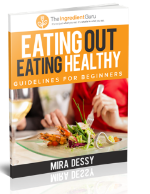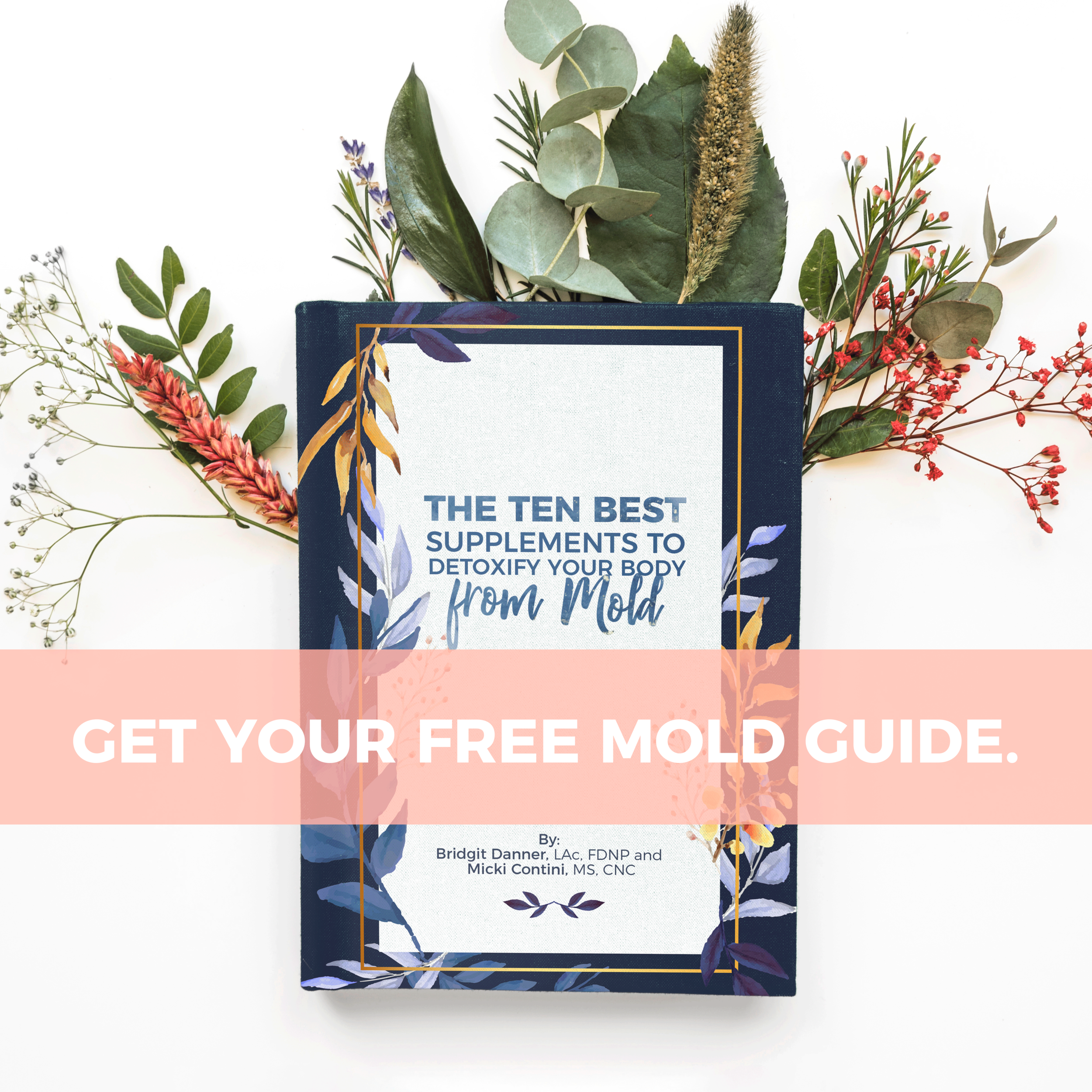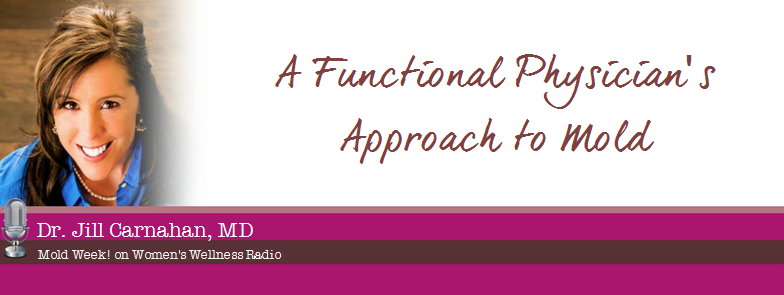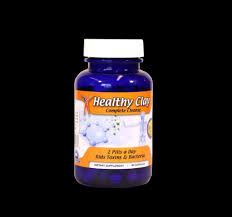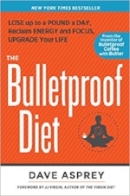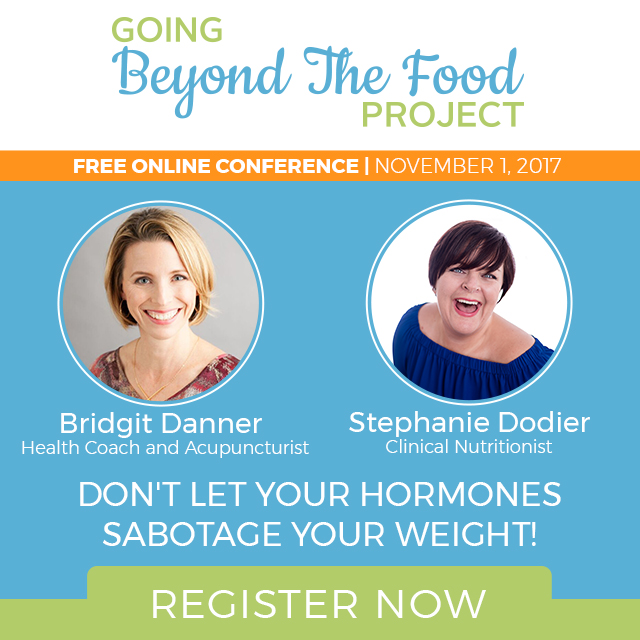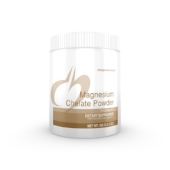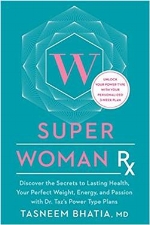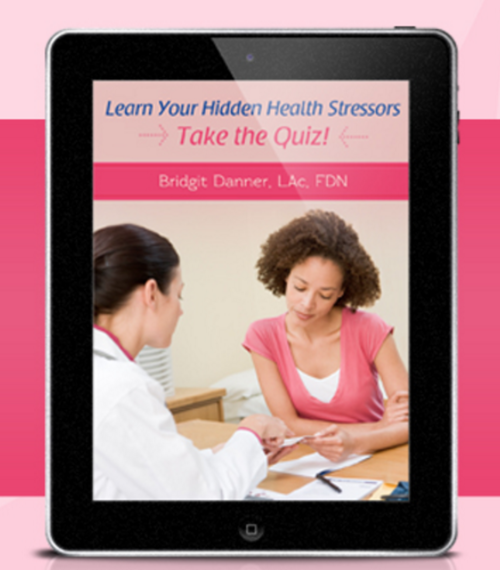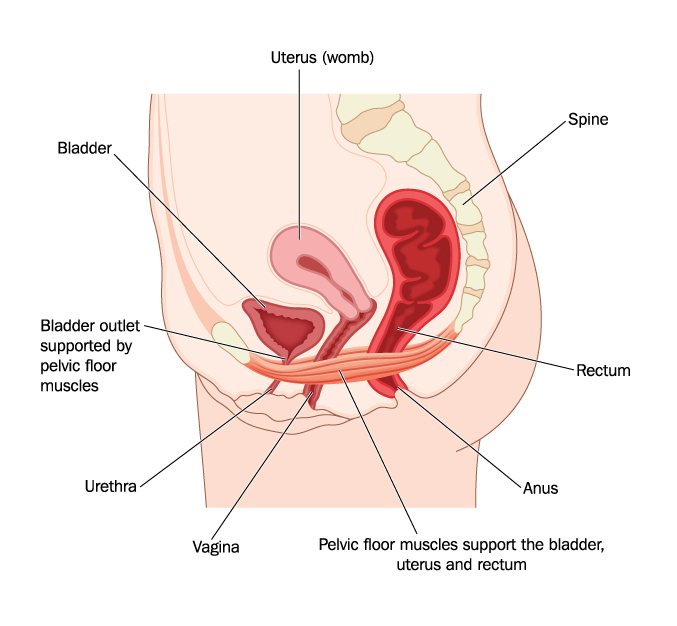There are root causes we study in functional nutrition that are often overlooked and have a side effect of weight gain. These root causes are not discussed in the mainstream advice about weight loss and, frankly, they are often missing from the trending paleo and ketogenic conversations, as well.
There are reasons you can't lose weight and they're not so simple. They take an advanced approach to understanding your environment and understanding your body. But they are things you can understand and overcome. Let's dig into these three reasons and what you can do.
1. Toxins
Toxins are, in my opinion, the number one reason people gain weight. Toxins, in the form of synthetic chemicals, fall into three classes that are dangerous for your weight.
A. Obesogens
Many chemicals are classified as obesogens. This means they increase the number of fat cells you have or increase the ability of your fat cells to get fatter. Doesn't sound so good, does it?! These include both ingredients in pharmaceutical drugs and synthetic products around your home.
B. Xenoestrogens
Other chemicals are classified as xenoestrogens, which means they act like estrogen in your body. We'll learn more about this later, but if you introduce ‘fake estrogens’ into your body they confuse your endocrine system and can lead to weight gain.
C. Gut Disruptors
Many chemicals are also gut disruptors, meaning they upset the bacterial balance in your gut. We'll learn more about this, but for now, know that if your gut bacteria is off balance you can tend to crave foods more often and use calories less efficiently.
A big reason for our toxic load is the low quality of our food. Americans get most of their calories from GMO corn syrup, white flour, and sugar. Now, if you're reading this blog, you probably don't eat in this way, but I think it's important to point out that most people still do. Yes, these items are more caloric, but they are also TOXIC. They are sprayed with herbicides and also stripped of nutrients, so your body cannot process them correctly.
Even if you try to eat better, there are still many additives in processed food and many herbicides and pesticides in non-organic food. Sadly, even organic foods are less nutritious, these days, due to decreasing soil quality.
Outside of the kitchen, we are exposed to thousands and thousands of toxins. Our best shot at reducing our toxic load is to focus on the home environment. You can greatly reduce your toxic exposure by improving food quality, by switching your cleaning products to non-toxic options, switching your beauty products (including makeup) to products free of heavy metals and fragrances, and reducing the amount of plastic you use in your kitchen (It is possible to get it to zero plastic!).
2. Gut Health
Your digestive health is a big factor in your weight, and I don't think this subject gets enough attention.
A. Nutrient Absorption
The gut is where you absorb nutrients and nutrient absorption is very important! For example, we need our nutrients to get sugars into our cells and if they don't, that extra sugar will often turn to fat. We need nutrients to run, create and eliminate hormones correctly, otherwise, we can also gain weight. If you find you have cravings, the nutrients Chromium, DHA and Magnesium may be helpful.
B. Inflamed Gut
Eating low-quality foods or foods you are sensitive to creates inflammation in the digestive tract. Eating on the run and not chewing your food can also cause digestive upset.
If your body is dealing with this inflammation, it can't do other important jobs like balancing your hormones for a healthy weight. Inflammation in your gut can also lead to a condition called intestinal permeability. Intestinal permeability is always a part of any autoimmune disease, including thyroid disease. (You’ll learn more about that in the hormone section.)
C. Bacterial Imbalance
Bacterial imbalance in your gut can also cause a weight problem. There are two bacteria, Firmicutes and Bacteroidetes, that affect your weight. People who are overweight tend to have a higher amount of Firmicutes to Bacteroidetes.
You might be wondering, “How do I fix this?” If you’re eating mostly well but can’t lose weight, it's important to cut out processed foods and sweets. This could be playing a part in your weight loss resistance. Instead, have a wide variety of fibrous foods, including seasonal vegetables, berries, and herbs.
You can also add some effective bacteria to your gut environment. There are two that I recommend. I recommend Megaspore Probiotic because it's one of the few probiotics that will actually survive your stomach and be able to blossom in your intestines. The strains in Megaspore read your gut environment and build up friendly bacteria while they knock down unfriendly bacteria.
Saccharomyces boulardii* is a yeast that we have found, clinically, pairs very well with Megaspore. This yeast helps build a substrate where friendly bacteria can live.
We’ve reviewed many client test results and we found that all of them have a low amount of secretory IgA. This is a protective layer of mucus in your gut. MegaMusoca is a product that really helps build up this protective layer.
3. Hormones
Finally, let's talk about your hormones. Many women intuitively know that their hormones are playing a part in their inability to lose weight. But hormones are a very complicated topic and it's hard to know what to do. The good news is that reducing your toxic load and supporting your gut health will help your hormones. So that's nice and simple.
But I also want to look at some specific areas where your hormones may be thwarting your efforts toward a healthy weight.
A. Insulin Resistance
Insulin resistance is not just something that diabetic people deal with. We have found that many of our clients, who feel like they're eating pretty well, still have insulin resistance. Insulin resistance means the sugars, the fuel for your body, cannot get into your cells. That will leave you feeling tired, even though you've eaten. Then the sugars have to go somewhere because it's dangerous for your body to leave them in the bloodstream, so the body will store them as fat.
Many women simply need to tweak the amount of food they eat, the combination of foods they eat, or how often they eat to avoid insulin resistance. Try spreading out your meals more. You don't want to snack all day long. When you have a meal, make sure you have some fibrous green vegetables, some protein, and some healthy fats. A few carbohydrates a day, like sweet potato or brown rice, are fine, but you want them balanced with fiber and fat.
Another way that you can get into insulin resistance is to be under chronic or high stress. When your adrenaline spikes, so does your blood sugar. We'll discuss some solutions around this below.
There are nutritional supplements that can help with cravings, including Magnesium Chelate, Chromium and fish oil.
B. Thyroid
It’s commonly-known that thyroid disease can disrupt your hormones in a way that affects your weight. When you have a low functioning thyroid you also tend to have a low metabolism; the rate of activity in the cells of your body. Low thyroid function can also lead to less stomach acid, which can lead to the poor nutrient absorption and inflammation we mentioned above.
I found Izabella Wentz’s “Safety Theory” to be very helpful in understanding this thyroid-related weight gain. When your body is under some combination of stressors, whether emotional, physical or chemical, your body perceives danger. Slowing down your thyroid is a way to put you into hibernation and keep you safe until dangers go away. Since you’re not actually hibernating, you're tired and you're gaining weight.
The thyroid is a tricky thing to treat because you don't really treat it directly. It needs to be treated holistically. This treatment includes reducing toxic load, improving gut health, increasing nutrient absorption, dealing with gut infections, dealing with chronic viral infections, and more.
In addition to the steps we discussed in sections one and two, you could take digestive enzymes and Hydrochloric Acid to support nutrient absorption. We carry these as an all-in-one product, Digestzymes™.*
C. Estrogen Dominance
As I mentioned above, many toxic chemicals are xenoestrogens and act like estrogen in the body by attaching to your estrogen receptors. If you have a xenoestrogen attached to your estrogen receptor it can't really function like estrogen but it's getting in the way of true estrogen getting to your cells.
Another concern is that excess estrogen is made by fat tissue. So if you've been exposed to toxins in your past, or currently and have extra fat tissue, you could be making extra estrogen.
Estrogen is a hormone we need, but we don't want it in excess.
Estrogen supports ovulation and mood. Some estrogens can be protective against breast cancers. But estrogen can also be a hormone of growth. Remember when you hit puberty? You had a flood of estrogen that grew your breasts and hips. Now that you're older, you don't want a flood of estrogen to grow your breasts and hips!
Unfortunately, in your perimenopausal years (around ages 35 to 55), you tend to be estrogen dominant. This is because you ovulate less often, and not as strongly, so you make less of the hormone progesterone that comes after ovulation. In a healthy body, you could take that age-related imbalance in stride. But if your body is toxic, your gut is inflamed, and you are under stress, you tend not to handle this imbalance as well. Along with weight gain, you could experience moodiness and heavy periods.
A plant compound, called DIM, is one supplement that's very popular for reducing extra estrogen. DIM* not only binds up and removes estrogen, it can also help increase circulating testosterone, which makes you feel more energetic and increases sex drive.
Progesterone* can be used topically to balance estrogen. I usually recommend it on days 14-26 of your menstrual cycle. Within functional nutrition, we'd rather test to see exactly what's going on with your hormones. But if that's not within your budget right now, you may want to try some topical progesterone, for just a few months, and see if it helps with sleep, PMS, and other symptoms.
The Whole Picture of Weight Loss...
Finally, I want to share some resources related to root causes of weight. I did not discuss the emotional side of things, but it can be a huge contributing factor. Many of us crave foods when we're feeling sad, hurt, or alone. Some women who were sexually or emotionally abused use weight as a way to protect themselves from the outside world.
My friend Stephanie Dodier specializes in the cravings side of weight management. If you feel like your cravings are out of control you need to hear what Stephanie has to say.


